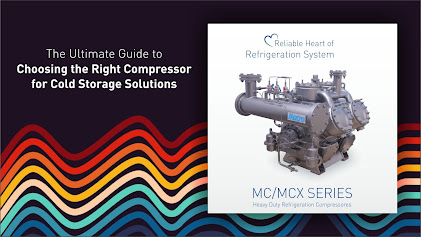What Are the Basic Functions and Various Types of Industrial Cold Storage?
Industrial cold storage is crucial for preserving perishable goods and ensuring product quality across multiple sectors. In this article, we’ll explore the fundamental functions of industrial cold storage and the various types available. We'll also highlight how Metro Refrigeration Industries contributes to this essential industry with innovative and efficient solutions.
Basic Functions of Industrial Cold Storage
Temperature Control: The primary role of cold storage is to maintain specific temperature ranges tailored to different products. This regulation slows down spoilage, microbial growth, and enzymatic reactions, keeping food and pharmaceuticals fresh for longer.
Humidity Management: Maintaining the right humidity levels is vital to prevent condensation, which can spoil products. For instance, fruits and vegetables thrive in higher humidity, while dry goods require a drier environment.
Inventory Management: Modern cold storage facilities utilize advanced inventory systems for better tracking of stock levels, ensuring effective rotation and monitoring of expiration dates. This capability is essential for maintaining high product quality.
Extended Shelf Life: By decelerating deterioration processes, cold storage significantly prolongs the shelf life of perishable items. This extension reduces food waste and enhances profitability for businesses.
Quality Preservation: Cold storage maintains the nutritional value, flavor, and texture of perishable items, ensuring they remain appealing to consumers and market-ready.
Types of Industrial Cold Storage
Refrigerated Warehouses:
- Overview: These large facilities are designed for bulk storage of perishables, maintaining controlled environments ideal for items like dairy and meat.
- Applications: Storing fruits, vegetables, dairy, and meat in bulk quantities.
Blast Freezers:
- Overview: These units rapidly freeze products, preserving their quality by preventing the formation of large ice crystals.
- Applications: Freezing seafood, meats, and prepared meals efficiently.
Cold Rooms:
- Overview: Smaller than warehouses, cold rooms can be tailored for specific temperature and humidity requirements, suitable for short-term storage.
- Applications: Holding fresh produce, pharmaceuticals, and floral items.
Walk-in Coolers and Freezers:
- Overview: These compact units allow easy access to stored goods and can be customized for various temperature needs.
- Applications: Used by restaurants and grocery stores for fresh ingredient storage.
Modular Cold Storage Units:
- Overview: Prefabricated units assembled on-site offer flexibility for businesses with varying storage needs.
- Applications: Ideal for seasonal storage or temporary cold storage requirements.
Transportation Refrigeration Units:
- Overview: Mobile refrigeration systems used in trucks and shipping containers keep perishable goods cold during transit.
- Applications: Distributing dairy, meat, fruits, and vegetables efficiently.
Vacuum Packaging and Cold Storage:
- Overview: Combines vacuum packaging with cold storage to extend shelf life by minimizing oxygen and moisture exposure.
- Applications: Storing cured meats, cheeses, and ready-to-eat foods.
Metro Refrigeration Industries: Your Trusted Cold Storage Partner
Metro Refrigeration Industries stands out as a leading provider of high-quality cold storage solutions, not just in India but also across 23 major countries, including the UAE, Turkey, Oman, Iraq, Thailand, Nepal, and Sri Lanka. Here’s how we contribute to the industrial cold storage landscape:
Reciprocating Compressors: Our efficient compressors are designed for optimal temperature control and minimal energy consumption, ensuring your operations run smoothly.
Bunker Coils and Air Cooling Units: These essential components maintain the desired temperatures, providing reliable cooling for various storage needs.
Ammonia Pumps and Valves: Critical for effective refrigeration systems, our ammonia solutions ensure efficient and dependable cooling.
Cooling Coils and Evaporators: These elements are vital for maintaining consistent temperatures in cold storage facilities.
LPR and HPR Systems: Our low-pressure and high-pressure systems are designed to maintain optimal temperature and pressure levels, crucial for effective refrigeration.
Conclusion
Industrial cold storage is vital for preserving the quality and extending the shelf life of perishable goods across various sectors. With the advanced solutions offered by Metro Refrigeration Industries, businesses can access a wide range of efficient cold storage options that ensure optimal product conditions. By investing in our high-quality refrigeration solutions, businesses can significantly reduce waste, enhance product quality, and improve profitability. Whether in India or internationally, our commitment to excellence positions us as a trusted partner in the industrial cold storage sector.
For more details visit Industrial Ammonia Refrigeration Compressor Manufacturer
or directly call us +91 88266 77754
for more related blog visit :




